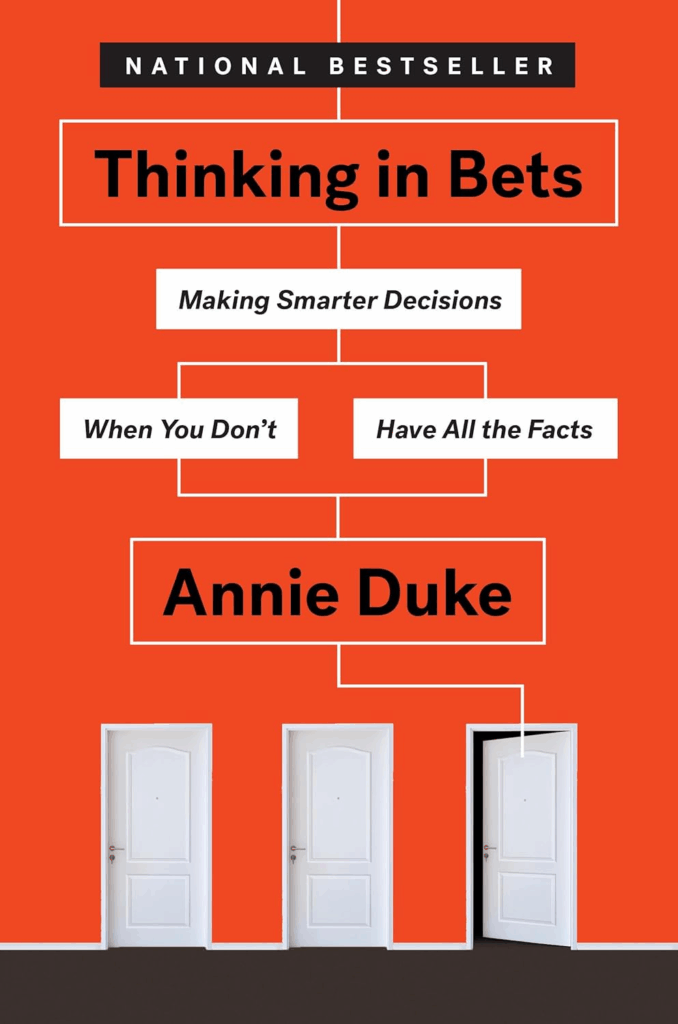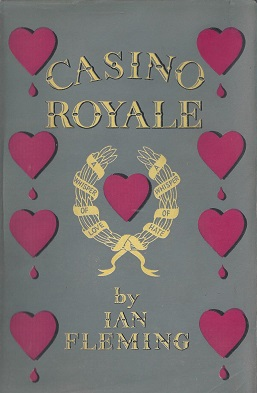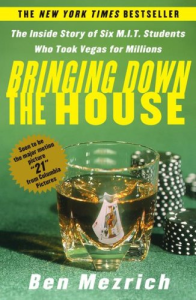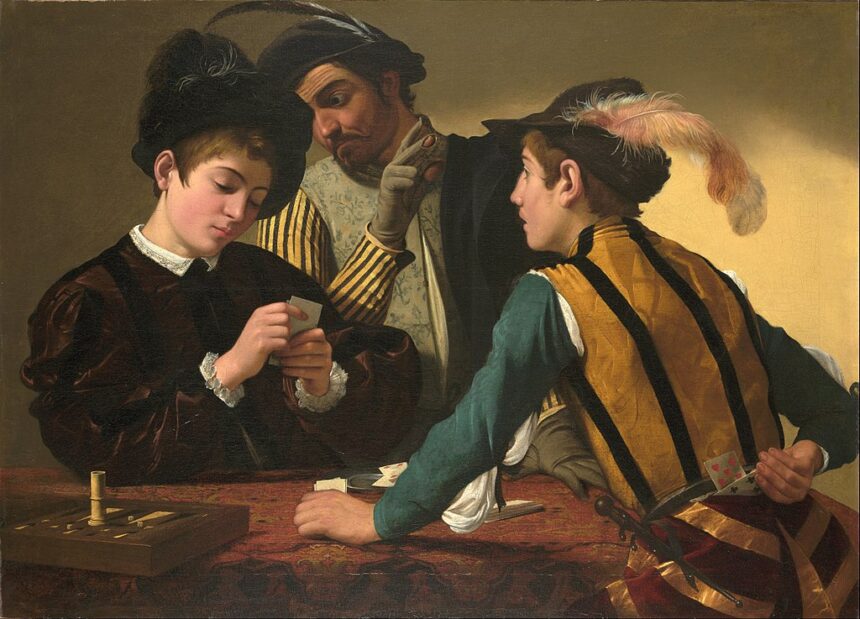In this post, Ill walk you through the best gambling books that teach smart strategy, real odds, and the mind games behind taking risks. The list spans wild true stories, solid math, and handy tips for every game, from poker to sports betting.
So, whether you gamble for fun or put serious money on the line, these pages will sharpen your skills and make you a wiser player.
Key Points & Top Books About Gambling List
| Book Title | Key Point |
|---|---|
| The Formula for Fortune | Explores how mathematical models can predict success in sports and finance. |
| Soccernomics | Uses data analytics to challenge myths and explain economics of football. |
| A Man for All Markets | A memoir showing how math and probability led to success in gambling and Wall Street. |
| Fooled by Randomness | Discusses how humans misinterpret chance and randomness in life and markets. |
| Thinking in Bets | Teaches decision-making through the lens of poker and probability. |
| Against the Gods | Chronicles the history of risk and probability in economics and society. |
| Trading in the Zone | Focuses on mastering trading psychology to reduce emotional decision-making. |
| The Gambler | Examines the mindset and risks behind professional gambling. |
| Casino Royale | Introduces James Bond and high-stakes gambling with espionage elements. |
| Bringing Down the House | Recounts how MIT students used card counting to beat Las Vegas casinos. |
10 Top Books About Gambling
1.The Formula for Fortune
This book shows how math formulas and stats help people guess results in both gambling and investing. It connects sports bets, slot machines, and stock trades, proving that steady number work can sometimes outsmart luck.
The writer explains risk, odds, and the mind-set rich gamblers and quants share when chasing profit. Real stories from the tables and the market bring each lesson to life.

Readers who prefer logic over hunches will appreciate the way fortune starts to look like a problem that can be worked-a puzzle instead of pure chance.
Features:
- Walks through real formulas that let you guess outcomes in sports and even in the betting ring.
- Links classic probability ideas to Wall Street moves and day-to-day wagers.
- Pulls in stories from actual matches and game odds, so the stats feel hands-on.
- Perfect for readers who want a cool-headed, numbers-first method to tilt luck their way.
2.Soccernomics
Even though it centers on soccer, Soccernomics dives into the cash, psychology, and cold data behind every kick, linking those ideas to smart betting. The authors show how clubs build spreadsheets to spot talent, set lineups, and take measured risks in the player market.

Their findings expose patterns that bookies and casual punters often miss. Packed with humor and clear charts, the book proves that numbers can tell stories hidden in plain sight. For fans who wager, Soccernomics hands over the tools to question gut feelings and bet with data instead.
Features:
- Runs spreadsheets over old football myths and shows where the truth hides.
- Digests the cash and stats that shape every kick and transfer decision.
- Shares secrets on how clubs pick, buy, and manage players by the numbers.
- Great for punters and die-hard fans who want to see the game through a data lens.
3.A Man for All Markets
Edward O. Thorp blends life stories of a hard-working math whiz, fearless blackjack player, and street-smart hedge-fund hand. He shows how keeping score, both on cards and on stocks, lets the little guy win against odds usually tilted toward the house.

With clear math and steady nerves, Thorp rewrote casino rules, then taught Wall Street traders to follow data, not hunches. His tale is proof that discipline, research, and calm under pressure beat luck every time. Anyone who bets a chip or a dollar will find inspiration-and tactics-in these fast-moving pages.
Features
- Tells the lively life story of Edward Thorp, the father of card counting.
- Shows step by step how he moved from beating blackjack to outsmarting Wall Street.
- Mixes personal highs and lows with hard math that anyone can appreciate.
- Leaves you ready to think clearly, whether at the casino table or in front of a stock chart.
4.Fooled by Randomness
Nassim Nicholas Taleb opens the curtain on luck, risk, and the stories we tell to feel safe. He tracks how loud wins in poker, trading, or life may hide weak skill and heavy chance behind bright headlines. With sharp wit, Taleb shows how memory biases trick us into seeing neat patterns where only rough noise exists.

Gamblers, investors, and casual readers will learn to spot smoke signals, slow applause, and the real odds. Respect for randomness, mixed with hard humility, is the true edge he hands us. Read it before the next big win convinces you that you cannot lose.
Features
- Digs into why people keep mistaking luck for skill and back again.
- Points out how sheer randomness sneaks into wins, losses, and headline moments.
- Pushes you to question the illusion of control both in bets and in markets.
- Reminds us that a slice of humility goes a long way when uncertainty is the house rule.
5.Thinking in Bets
Annie Duke, a former professional poker player, argues in Thinking in Bets that daily choices resemble a poker wager. Drawing on her card-game background, she shows how to weigh uncertainty, steer clear of knee-jerk feelings, and act even when facts are thin.
The core lesson is simple: a sound process can net a bad result and a flop can sprang from great work, so decisions should rest on how they were reached, not what prize they paid.

The book speaks to gamblers, traders, and anyone under the gun, teaching them to wear the mindset of a cool-eyed card pro when risk knocks. Master that habit of thinking in probabilities, and everyday problems feel less like wild bets and more like hands you can read.
Features
- This book comes from Annie Duke, a World Series of Poker champ.
- It argues that decisions should rest on odds, not yes-or-no black-and-whites.
- Readers learn to choose smarter when the future looks cloudy.
- Poker tactics blend with life advice for work, family, and small bets.
6.Against the Gods
In Against the Gods, Peter L. Bernstein sweeps across time to tell the story of risk, starting long before Wall Street. He shows how people turned guesswork into tools-fair dice, probability tables, and rules for insurance-that made chance less of a curse and more of a partner.
Luminaries like Pascal, Fermat, and Keynes each cast their die, slowly shifting the view of uncertainty from blind fate to something we can study and shape. Gambling is not the books main theme, yet its lessons land squarely at the table.

Bernstein gives readers the deep background needed to see chance, human impulse, and smart planning as threads of the same big gamble, making his book a must for serious players and anyone who faces risk head-on.
Features
- Peter L. Bernstein tells the sweeping tale of risk and chance.
- Meet the thinkers-from ancient Greeks to modern quants-who shaped the idea.
- See how these insights built todays stock markets and insurance plans.
- Whether you bet, save, or speculate, the lessons speak to everyone.
7.Trading in the Zone
Mark Douglass Trading in the Zone drills down into the mental side of trading-a mind-set that gamblers need just as badly. In plain language, it shows you how to stick to your plan, stop knee-jerk reactions, and make choices that stay steady no matter what.
Douglas insists that winning comes less from secret tips and more from how you think. His sharp take on fear, bragging confidence, and thinking in odds speaks to poker players, sports bettors, and anyone who climbs into the markets.

The book hands you mental tools so you can perform under the spotlight and steer clear of sabotaging yourself. If you want the cool edge of a pro gambler in your head, add this title to your reading list.
Features
- Mark Douglas zeroes in on the mind-set every trader needs.
- He shows how to stop panic buying and aftermath regrets.
- Step by step, he urges habits so steady they survive any storm.
- The wisdom fits card games, sports bets, and stock orders alike.
8.The Gambler
The Gambler, by Fyodor Dostoevsky, digs into addiction, luck, and what makes us tick. It follows a narrator hooked on roulette, letting readers ride his wild wins and gutting losses. Drawing on Dostoevskys own brushes with the tables, the tale reveals how risky play can trick the mind into feeling in control when were really not.

The book does not hold back on the darker parts of the chase-the bright lure, the whispered lies we tell ourselves, and the storm of feelings that follow. Unlike dry how-to guides, The Gambler wraps these lessons inside a story, showing exactly what gambling can do to a single, restless soul.
Features
- This short novel dives deep into the grip of roulette and risk.
- Fyodor Dostoevsky wrote it after his own brushes with addiction.
- Inside the pages, chips tumble and nerves fray as players chase glory.
- It is a raw look at longing, power, and the thin line of control.
9.Casino Royale
In Ian Flemings Casino Royale, we meet a fresh, tough James Bond who steps into a smoke-filled room to risk it all over one table of baccarat. The story may be made up, yet Fleming nails the tight knots of sweat, bluffs, and quick math that real card players feel every minute.

Bonds ice-cool face and razor moves are a front line in the silent mind war that takes place as chips slide and eyes scan the crowd. Just as bad spies bet lives instead of coins, the novel links casino swings to the bigger, bloodier game of espionage.
Thrill-seekers and poker lovers alike will find the fast pace, glitzy danger, and nail-biting cool grit hard to put down. It reminds us that in some high rooms the only thing at stake is who gets to walk out alive.
Features
- Bond, James Bond, walks into a plush room and stakes his life on baccarat.
- Ian Fleming mixes spy thrills with the slow burn of high-stakes play.
- Every card flipped tests cool nerves and iron discipline.
- The book wraps readers in the glitter and peril of the casino world.
10.Bringing Down the House
Ben Mezrichs hit non-fiction book, Bringing Down the House, rolls out the true tale of MIT math whizzes who cracked casino blackjack and walked away with millions. The pages turn like a caper film, blending number crunch, secret meet-ups, and the kind of heart-stopping risk that keeps you guessing.
Armed with card-counting formulas, the crew treats every deal like a lab experiment while dodging eagle-eyed pit bosses and the lure of easy spending.

Their success proves that cool discipline, hard math, and a bit of guts can flip the tables on the so-called house edge. Its a must-read for anyone curious about the thin line between brainpower and lady luck in the world of high-stakes gambling.
Features
- Follows MIT kids who outsmarted Vegas after-class.
- Breaks down card counting and team play step-by-step.
- Mixes heart-pounding action with easy math you can follow.
- Perfect for anyone who dreams of winning big at blackjack.
Conclusion
To wrap things up, the gambling books on this list teach useful lessons about odds, risk, human behavior, and smart planning. It doesn’t matter if you read for fun, bet regularly, or follow finance topics; every book gives you something different to think about.
Filled with true success stories and clear analysis, they can boost your judgment at the table and widen your view of luck itself.
FAQ
What are the best books to understand gambling strategies?
The Formula for Fortune, Thinking in Bets, and Trading in the Zone are great for learning strategy, mindset, and probability.
Are these books only for gamblers?
No. Many, like Fooled by Randomness and A Man for All Markets, also apply to finance, decision-making, and psychology.
Which book is best for beginners?
Thinking in Bets is a great starting point due to its clear language and practical decision-making advice









